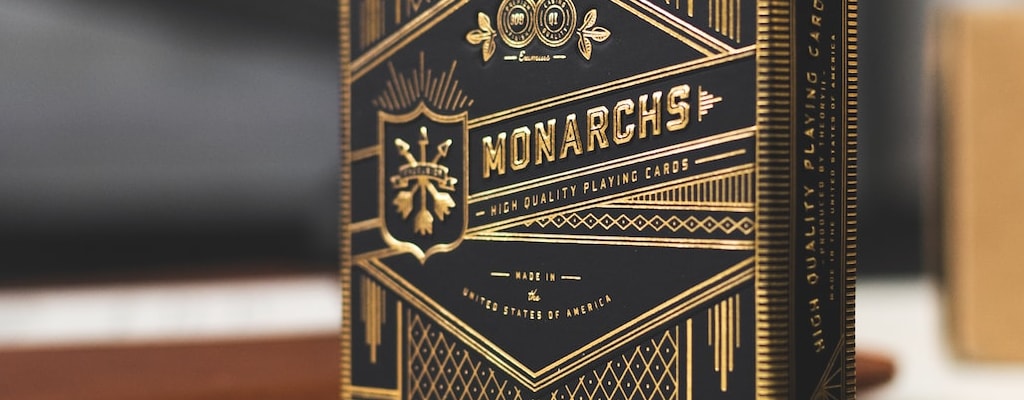on the cards: Idiom Meaning and Origin
What does ‘on the cards’ mean?
The idiom "on the cards" means that something is likely or probable to happen in the future.

Idiom Explorer
The idiom "put one's cards on the table" means to be honest and upfront about one's intentions or opinions, without hiding anything. It implies being transparent and revealing all relevant information to others.
The idiom "on the bubble" means being in a situation where success or failure is uncertain, potentially being at risk of elimination or not making a desired outcome.
The idiom "on the anvil" means that something is being planned, developed, or worked on in order to achieve a specific outcome or result. It implies that the project or idea is in the early stages, requiring further refinement and effort before it can be considered complete or successful.
The idiom "on tenterhooks" means to be in a state of suspense or anxiety, waiting for something uncertain or important to happen. The feeling is similar to being on pins and needles, with a heightened sense of anticipation.
The idiom "only time will tell" suggests that the outcome or truth of a situation can only be known or understood in the future as events unfold.
The idiom *on ice* means to be postponed or put on hold. It originated from the idea of putting something on ice to preserve it or keep it fresh.
The idiom "on hand" means to be available or accessible in the present moment or in a particular place.
The idiom "one's days are numbered" means that someone is likely to die soon or that their life will come to an end in the near future.
The idiom "on a losing wicket" means being in a situation where success is unlikely or the odds are against you.
Unveiling the Prophetic Potential
The phrase "in the cards" is a related idiom to "on the cards." It also originates from card games, specifically tarot cards. In tarot readings, cards are drawn and interpreted to provide insights into the future. When something is "in the cards," it means that it is strongly predicted or destined to happen. Similar to "on the cards," this idiom implies a high probability or likelihood of a certain outcome, but does not guarantee its certainty.
An example of using "in the cards" in a sentence is: "A successful business venture is definitely in the cards for her, given her innovative ideas and strong work ethic." Here, the idiom suggests that the person has a very good chance of experiencing success in a business endeavor due to their unique ideas and strong dedication.
The phrase "hold the cards" is another idiom related to "on the cards." It refers to having control or power in a situation, similar to how a player who holds the cards in a card game has a strategic advantage. When someone "hold the cards," they have the upper hand or are in a position of authority.
For instance, one might say, "In negotiations, it's important to hold the cards and not reveal your intentions too soon." This statement advises that it is essential to maintain control and keep your position of power hidden until the right moment in a negotiation, just as a skilled card player strategically decides when to reveal their best cards.
Another related idiom is "in the offing," which means that something is likely to happen or is expected in the near future. It suggests that a particular event or situation is imminent or on the horizon. This idiom does not guarantee the occurrence of the expected event, but rather indicates a strong possibility.
For example, one might say, "There's a promotion in the offing for her, given her impressive track record and the company's expansion plans." In this sentence, "in the offing" expresses the idea that a promotion is highly likely to happen soon based on the person's outstanding performance and the company's growth.
The idiom "chances are" is also related to "on the cards." It is used to indicate a high likelihood or probability of something happening. It suggests that the odds or chances of a certain outcome occurring are in favor of it happening.
For instance, one might say, "Chances are, the concert will be sold out, considering the popularity of the artist and the limited number of tickets available." In this example, "chances are" is used to convey the idea that it is highly probable that the concert will be fully booked due to the artist's popularity and the scarcity of tickets.
Lastly, the idiom "put one's cards on the table" is another related phrase to consider. It means to be open, honest, and transparent about one's thoughts, intentions, or motives. This idiom originates from the act of players in a card game revealing their cards openly on the table for all to see.
For example, one might say, "In order to reach a successful agreement, both parties need to put their cards on the table and discuss their desires and concerns openly." Here, "put one's cards on the table" emphasizes the importance of being candid and forthright in order to achieve a mutually beneficial agreement or resolution.
Example usage
Examples:
1. It's definitely on the cards that she will get promoted. She has been putting in a lot of hard work and the management is impressed with her performance.
2. With the current economic situation, it seems unlikely that a salary hike is on the cards for the employees.
3. After winning the first three matches, it's on the cards that they will win the tournament. They have been playing exceptionally well and have a strong team.
More "Possibility" idioms



